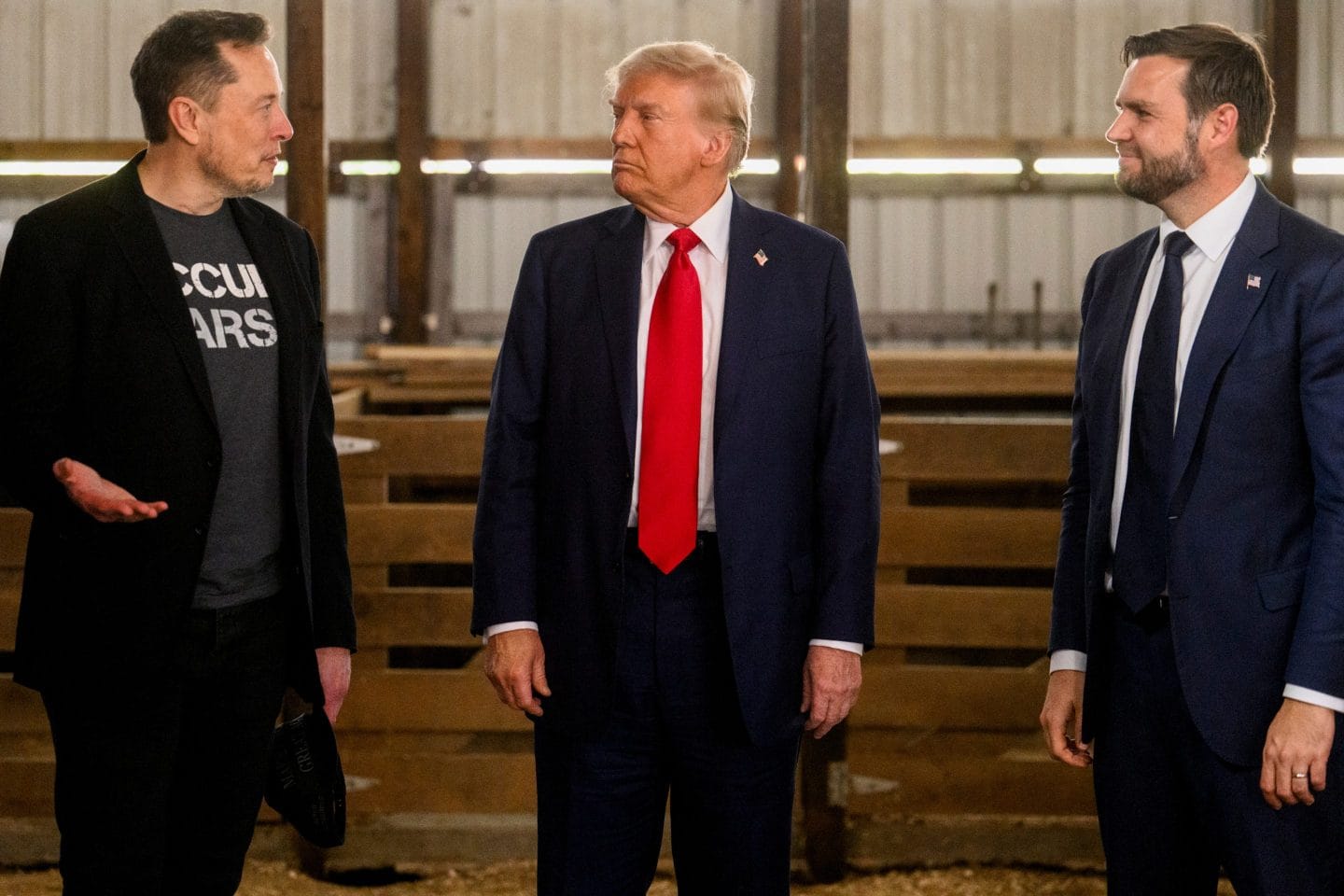United States of D.O.G.E.: Explore about the Department of Government Efficiency

In November 2024, Elon Musk and entrepreneur Vivek Ramaswamy emerged as unlikely leaders of a new initiative known jokingly as the “United States of D.O.G.E.”-also called the Department of Government Efficiency. This is an initiative that was championed by former President Donald Trump to deal with inefficient Ness within the U.S. federal government by reshaping its operations to reduce barriers and excess spending.
This “Manhattan Project for efficiency” is rather an interesting and controversial idea. The background, objectives, and reaction around this bold idea have left critics and proponents wondering if DOGE will indeed bring about change.
The Vision of the Department of Government Efficiency (DOGE):
Donald Trump, winning the election for the presidency in the United States in 2024, has launched DOGE as the cornerstone of his “Save America” movement. It aims to set ambitious goals: audit the federal government, eliminate redundant programs, and embrace a culture of accountability and fiscal responsibility.
The Department of Government Efficiency is a project designed to streamline federal spending. Under the leadership of tech entrepreneur Elon Musk, who is known for innovation and a bit unorthodox method, DOGE is working to think outside the box in how government does business. It needs to reduce some forms of waste but also introduce this new era of greater transparency and effectiveness. Its mission would seem to align with the traditional Republican agenda: smaller, less-costly government. However, it’s just as emblematic of Musk’s history and credentials-two of which are changing the face of transportation and space travel.
Elon Musk and Vivek Ramaswamy: Unlikely Government Renewals:
Neither Musk nor Ramaswamy is close to being an ordinary figurehead in renewal of the government. There’s Musk, for example, a CEO at Tesla or electric car producer and SpaceX, a manufacturer of private spaceships. He’s in no hesitation to express his disgust over the inefficiency of the government and call for more technological methods to handle societal issues. His leadership style was adored for taking things to the limit and speeding up the timeline but panned for being too intense and polarizing. Ramaswamy is an entrepreneur and a political figure with business experience and public service. Both he and she embody the entrepreneurial method in addressing government reform, combining the private sector efficiencies with the need for transparency that operates in the public sector.
DOGE hopes to combine Musk’s innovative thinking with the business sense of Ramaswamy in this venture to make the government more efficient. Musk’s vision has apparently seen intent on using data-driven measurements and performance metrics to hold the federal government accountable, with the intention of cutting some amount of the trillions of dollars the government spends using private sector instruments. But both Musk and Ramaswamy appear pretty enthusiastic about the idea.
DOGE’s Major Goals and Expectations:
The Department of Government Efficiency is implementing a few major goals:
1. Reduce Wasteful Expenditure: The core aim of DOGE is to remove duplication in the federal agencies. It has been an issue of government expenditure for decades, and this department is destined to remove inefficient practices which are costing billions of dollars every year to taxpayers.
2. Transparency Increase: DOGE should raise the level of transparency in federal spending and decision making. It could be the development of such tools that would update in real-time and a public facing platform through which citizens can view the government budget and expenditures.
3. Performance-Based Metrics: Borrowing ideas from private sector practices, DOGE will introduce KPIs and other metrics in order to review the success of some of its government initiatives. This will indicate effectiveness and which of the federal initiatives should be perfect.
4. Bureaucracy Reduces Red Tape: Bureaucracy reduces the speed of government work in most aspects. DOGE targets a more flexible and not rigid body so that departments can easily makeover to meet newly-emerging needs, thus reducing red tape affecting core facilities
Social Media and Political Response to DOGE:
The news of DOGE is receiving mixed responses from social media outlets as well as among the political corridors. Many said the proposal is an interesting plan, explaining that this is just what the country needs as antidote for the bloated federal structure. Social media users especially responded enthusiastically, fondly recalling to attach the initiative to long-time association of Musk with Dogecoin, a cryptocurrency that serves also as a cultural icon for tech enthusiasts. In hours of such an announcement from the department, “United States of D.O.G.E.” meme flooded the platforms like Twitter and Reddit and reflects the public interest in this matter in a humorous manner and a take on government’s ambitions.
However, the entire concept of DOGE has also been accused. Analysts feel that Musk and Ramaswamy are not very effective proponents of reforms in the federal system; both have had strong business backgrounds but very little first-hand experience with governance. Additionally, a federal government model is feared to be tough for implementation as a private sector approach; there exist varying priorities, different regulatory requirements, and differing expectations between the two models.
Environmental groups have also opposed this move. The private initiatives by Musk always focus more on disruptive technologies that have devastating impacts on people, and some technologies do not fit in with the already established environmental regulations or objectives. Critics feel that DOGE’s emphasis on efficiency could compromise existing environmental protections, labor rights, or other safeguards.
Future of the United States of D.O.G.E.: Hopes and Challenges:
The Department of Government Efficiency reflects an interest in governmental reform and accountability on demand. Several factors might swing the balance to the success of this initiative:
1. Scalability and adaptability of solutions: DOGE will have to adopt scalable and adaptable solutions that address inefficiencies without disrupting the base service of the Federal agencies whose regulations and mandates are very specific.
2. Bipartisan Support: To find its success, DOGE will have to solicit bipartisan support. In a polarized America, where the dynamics of politics have become increasingly polarized, its success will depend on garnering other lawmakers’ support, something that cannot directly come from one side, even though the legitimacy flowing from Trump’s endorsement.
3. Private-Sector Attitude and Public-Sector Reality: Driving Private-Sector Efficiency into Government Operations clearly requires a lot of planning because the government functions independently and is responsible not only to the constraints of budget but to the public’s well-being and regulation compliance, which may limit the extent DOGE can exercise corporate-style efficiencies.
4. Public Perception and Involvement: In a project like DOGE, that puts maximum emphasis on transparency, its long-term result would largely depend on public perception and acceptance. It is how well it communicates goals to the public and manages to help people see tangible results
Conclusion: The “Manhattan Project” of Government Reform?
United States of D.O.G.E. is generating a lot of talk about change for the federal government. Having Elon Musk and Vivek Ramaswamy at the head, the program will surely bring together a refreshing mix of innovation, entrepreneurial spirit, and reformist zeal. Long-term consequences of DOGE are obscure, but certainly presents a bold approach to tackling many of the inefficiencies and fiscal irresponsibility that have long beset the United States of America’s government.
Whether DOGE succeeds in its pretensions remains to be seen, but the fact that it has been attempted has already generated talks of what a more efficient and less bureaucratized government might look like. In that way, DOGE becomes a bellwether for yet another round of government accountability-or a cautionary tale about the limits of private-sector solutions in the public sphere.

